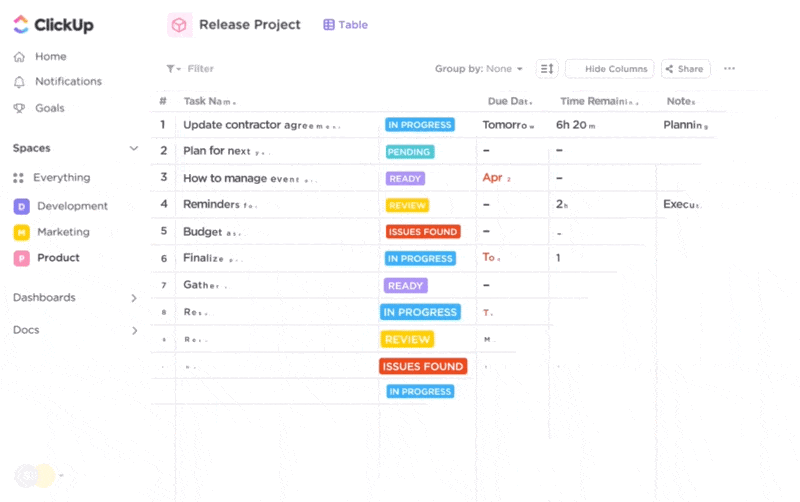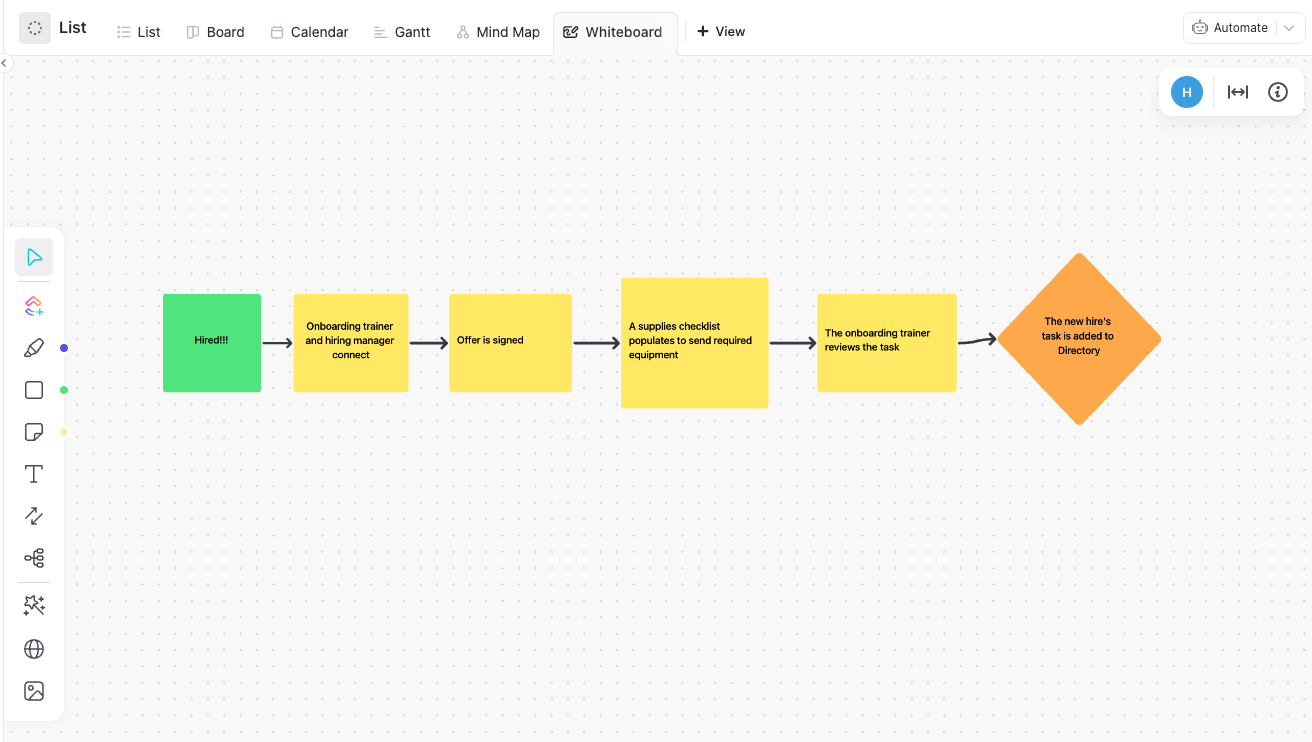A Realistic Look at a Day in the Life of a Customer Success Manager

Sorry, there were no results found for “”
Sorry, there were no results found for “”
Sorry, there were no results found for “”
Customer success managers, or CSMs, are the unsung heroes of the business world. They specialize in understanding what it takes to keep customers happy, engaged, and motivated to spread the word about great products and services.
A day in the life of a customer success manager includes a variety of responsibilities. For instance, it could be warmly welcoming customers, ensuring positive onboarding experiences, and anticipating customer demands before they arise.
Let’s take a closer look at the role and responsibilities of a CSM as well as tips and strategies for success. 🌻
A customer success manager helps customers get results from a new product or service. In doing so, they reach out to customers, build strong relationships, and provide guidance to ensure customers are happy with their purchases.
The day-to-day life of a CSM is all about providing the first point of contact between a new customer and a company. From there, they anticipate the needs of new customers, provide training sessions, and work alongside account executives to upsell related products or services.
Another way to look at the customer success role is like a strategically proactive version of customer service or technical support.
A customer success manager ensures customer success by providing engagement, guidance, and support while anticipating the customer’s needs.
Customer success keeps customers satisfied with a company’s products or services. It’s a strategic approach to increase the likelihood that customers will:
Customer success directly impacts customer satisfaction by aligning the product or service with their needs and helping them achieve their goals.
Why?
Because when customers experience success and receive support from a company they can rely on, they’re more likely to be satisfied and loyal. 🤩✨
A day in the life of a customer success manager is a blend of proactive engagement, problem-solving, and relationship building. Each day presents opportunities to drive success, improve the customer experience, and cultivate lasting partnerships. 🌱
Here’s an overview of what a standard day might include.
Customer success managers often start their days by scheduling and reviewing customer engagements based on urgency and importance.
This might include tasks like:
Cutting-edge customer success software makes each of these tasks easier to manage. The same is true for high-tech customer retention software.
Collaborating and coordinating with internal teams and stakeholders is essential if a CSM wants to craft seamless customer experiences and ensure customer success.

For instance, this might mean marketing and customer support teams working together to address customer feedback. 🤝
Likewise, customer success team members might work with account managers to improve customer relationships and onboarding experiences.
Customer onboarding is another crucial part of a day in the life of a customer success manager.
The initial onboarding period typically involves things like:
Next, a CSM will follow up with customers to collect feedback, address any issues customers encounter, and reinforce the value proposition of the product or service.
Training and implementation ensure customers get maximum value from a product or service. This might involve the following:

By prioritizing training and implementations, customer success managers help customers leverage the full potential of the product or service, which drives satisfaction, retention, and long-term success. 🏆
Customer communication management is yet another task in the day-to-day life of a customer success manager.
These communications can occur across multiple channels, including:
Customer success professionals must monitor and manage these channels and promptly respond to customer communication.

Implementing a high-quality CRM strategy using customer relationship management software makes this easier.
Data analytics allow customer success managers to understand and optimize the customer journey. You’ll find valuable insights into customer behavior, needs, and preferences with data from sources like:
A CSM can analyze this data to develop customer success plans, anticipate customer issues, and proactively address potential roadblocks.

Data analysis isn’t a walk in the park, but using templates is a great way to lay the groundwork—and ClickUp templates can help.
There’s a difference between clients and customers, but customer success managers are there for both. 🙌🦸
Customer relationships are often short-term and transition-driven. On the other hand, client relationships are generally service-based and long-term.
CSMs work alongside account executives and managers during pre-sales, sales, and upselling conversations. Here’s how CSMs are involved throughout the customer journey.
In the pre-boarding step of the client journey, CSMs lay the foundation for a successful onboarding experience. This often involves:
Pre-boarding allows CSMs to help set and manage client expectations as they outline the steps involved in the onboarding process.
Customer success managers ensure a smooth and successful onboarding experience for clients as they begin their relationship with a product or service.
This element of client management begins just after the sales process. It’s when the CSM reaches out to establish a line of ongoing communication and sets the stage for building lasting trust.
CSMs do this by:
These steps are crucial for setting expectations and monitoring progress through the client journey.
After onboarding, CSMs continue to play a crucial role in the client journey by ensuring ongoing success and satisfaction (in other words, post-onboarding).
This is where client retention strategies are in full swing to help the CSM do things like:
CSMs also act as advocates within the company to ensure client feedback is heard, which fosters trust and contributes to long-term client retention and satisfaction.
Customer success managers rely on a unique blend of skills and traits to support and empower clients effectively. Here are five of the most essential qualities.
Customer success managers rely on verbal and written communication skills more than anything else. These skills are the key to effectively interacting with clients to:
Customer success managers must empathize with their customers’ perspectives and challenges. Empathy enables CSMs to tailor their support and empower clients at every step of the journey. 🪜
Proactively identifying and addressing client issues is what customer success managers do best, and it relies heavily on problem-solving abilities. It’s all about anticipating roadblocks, analyzing situations, and developing solutions to help clients succeed.
Customer success managers are masters of thinking strategically. It’s what allows them to align the goals and objectives of the company with those of the customer.
Building (and maintaining) healthy client and customer relationships is essential for CSMs. This includes things like:
A day in the life of a customer success manager comes with plenty of hurdles that require strategic action to overcome.
The most common challenges include:
Immediate strategies for overcoming these challenges include proactive communication, educational resources, and personalized support.
These strategies go hand-in-hand with the long-term approaches of continuously gathering customer feedback to improve products or services and implementing quality CRM software.

As it turns out, ClickUp can help with that last one. 💡
ClickUp’s CRM makes managing customer workflows, information, campaigns, and projects easier so you can:
Tap into hundreds of unique features with ClickUp for Customer Success teams to keep clients and information organized for your entire team.
You’ll have access to everything you need to delegate efficiently, conquer challenging issues, and condense custom CSM workflows.
By prioritizing customer success and delivering exceptional support and service, CSMs help improve retention, loyalty, and revenue, positioning the company for long-term success in competitive markets.
CSMs affect the overall success of a business by boosting:
CSMs enhance the customer experience every day, whether they’re working to understand a customer’s needs better or helping a client define their organization’s overall goals.
Effective customer success management is paramount for businesses that want to go beyond surviving and truly thrive in today’s competitive market. By prioritizing customer satisfaction, retention, and loyalty, CSMs continually look for new and innovative opportunities for growth and success. 📈
With a comprehensive suite of features—all specifically designed to streamline and enhance CSM operations—ClickUp makes each day in the life of a customer success manager easier.
From proactive support and engagement to seamless collaboration and project management, ClickUp has everything you need to drive tangible results in customer satisfaction.
Ready to take your customer success initiatives to the next level?
It’s time to get started—sign up for ClickUp. It’s free!
A typical day in the life of a customer success manager involves:
The life of a customer success manager is all about communicating with potential, new, and existing customers in a solutions-oriented, empathetic manner. CSMs handle everything from managing customer service-related tasks to gathering feedback necessary for innovation.
A customer success manager’s role is gratifying, but it can be challenging. This job often involves complex tasks like resolving issues, managing customer demands, and analyzing data to improve customer retention, which can (at times) cause stress.
© 2025 ClickUp